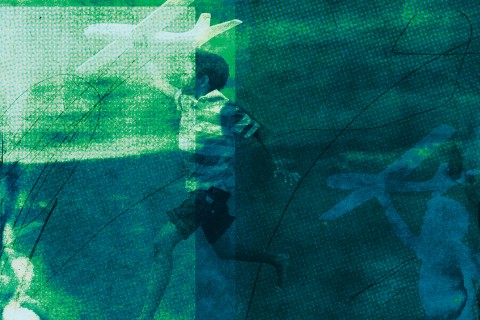Americans' belief in God is high but nuanced, study says: Polling the populace
A new analysis of how strongly Americans believe in God finds no upward trends in atheism, agnosticism and doubt. However, surveys also show that various levels of belief and skepticism are masked by a common claim that 95 percent of U.S. adults believe in God.
The better figure would be 80 percent who believe in a traditional, personal God—a number combining 64 percent who have no doubts about God’s existence and 16 percent who believe despite some doubts—according to a series of nationwide surveys that offered six possible responses.
About 8 percent of Americans said the best description for them was, “I don’t believe in a personal god, but I do believe in a higher power of some kind.”
Other responses were picked by the ambivalent (“I find myself believing in God some of the time, but not at others,” 4 percent) the agnostic (“I don’t know if there is a God, and I don’t believe there is any way to find out,” 4 percent) and the atheist (“I don’t believe in God,” 2.5 percent).
The data came from a total of 8,000 adults polled in six General Social Surveys by the Chicago-based National Opinion Research Center in the period 1988 through 2000. The now-biennial GSS poll did not ask this multilevel question about belief in God in 2002 or this year.
In a paper for this year’s meeting of the Society for the Scientific Study of Religion, sociologist Darren Sherkat of Southern Illinois University said he did “the first systematic analysis” on what demographic factors would predict “the odds of being an atheist, agnostic or a true believer.”
Many of Sherkat’s conclusions were not surprising. He found that marriage and childrearing strengthen belief, that divorce can have a negative effect, and that aging is the most important element contributing to certainty in God. “As humans get older, marry and have children, they become more convinced [of] the existence of God,” said Sherkat. By the same token, atheists also are likely to be more convinced in their disbelief as they grow older.
Higher education, as expected, takes its toll on certainty of belief. “Each year of increase in education reduces the odds of being in a more ‘certain’ belief category by 7 percent,” Sherkat said.
Denominational ties are indicative, too. While only 53 percent of liberal Protestants (including Presbyterians and United Church of Christ members) and 56 percent of Episcopalians have unwavering faith that God exists, fully 81 percent of Baptists and 85 percent of Mormons have no doubt about God.
Some 65 percent of the “moderate” Protestants (Methodist, Disciples of Christ, Brethren and Reformed) as well as Lutherans and Catholics are certain in their belief. Those church groupings—plus the liberal Protestants and Episcopalians—all had between 19 and 23 percent who agreed with the statement, “While I have doubts, I feel that I do believe in God.”
Only 27 percent of Jews believe firmly that God exists, while 21 percent picked belief-with-doubt and 22 percent agnostic. Sixteen percent identified with the “higher power” concept.
The survey participants who limit their belief to a higher power “are not very active in religious organizations,” Sherkat said; 70 percent of them either never attend church or at most attend once a year. The highest percentages among Christian respondents preferring “higher power” were 13.2 percent of liberal Protestants and 10.6 percent of Episcopalians.
Most polls fail to account for “the diversity of beliefs about gods,” said the sociologist, who has taught religion-related courses at Southern Illinois and earlier at Vanderbilt University. He has been an editor for the journal Review of Religious Research.
The Gallup Poll, cited for decades on how many Americans believe in God, traditionally asks respondents which comes closest to their view: “1) You believe in God; 2) You don’t believe in God, but you do believe in a universal spirit or higher power; 3) You don’t believe in either.”
When Gallup pollsters asked that question in 1999, for instance, 86 percent picked the first answer, 8 percent the second, 5 percent the third, and 1 percent said they were unsure, according to the organization’s Emerging Trends newsletter.
Another Gallup publication, sampling responses back to the 1940s, combined into a single yes response the beliefs in “God” and “a universal spirit or higher power.” In six sample years, belief in a deity ranged between 94 and 99 percent.
One year in which only 1 percent said no was 1954, the same year that the U.S. Congress passed a law adding the phrase “Under God” to the Pledge of Allegiance.




